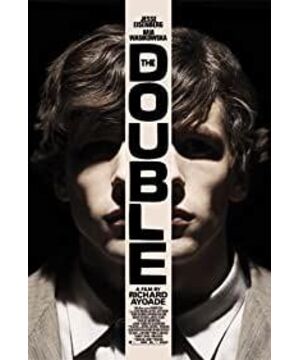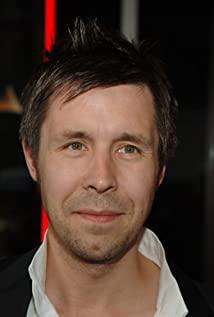From Dostoevsky's Goliadkin to Richard Ayoade's Simon, both texts borrow the motif of "shadow" and expand their understanding of modernity. Reflection and Criticism.
1. Spiritual Alienation and Identity Crisis
Jiupin Civilian Goliadkin and company employee Simon, both in their poor living conditions, encountered an "other self" who had the same appearance as themselves, but a different personality, but who could be recognized by the people around them. . As a result, they struggle to find a balance between the pursuit of self-identity and the desire for social identity. How do these two texts view the causes of this phenomenon? The novel in 1846 and the film in 2013 both point to the transformation and distortion of the human mind that accompanied by the bureaucracy and mass production brought about by modern production, which is what Marx called the human spirit.” Alienation" problem.
Of course, we can also find this in the original context in which the motifs of such novels arise. The term "shadow body" first appeared in the 18th century novelist Jean Paul's book Siebenkäs. [1] The protagonist, Spinks, turned to his imaginary friend Rehberger Boer for help because of his unhappy marriage. In effect, Rehberger Boer is Spinks' alter ego (Jean Paul coined the word doppelgänger here to refer to the problem or phenomenon). Rehbergerball told Spinks that only death can start another happy life. Ultimately, the protagonist listens to his alter ego and chooses to die. It was also in death that Spinks was reborn, met a girl named Natalie, and found his happiness again. After that, the term "shadow body" was carried over to refer to the existence of another self in each person. It is invisible, not visible to the naked eye, nor does it appear in the mirror, but it has its own consciousness and desires, which will affect people's thoughts and behaviors.
The generation of such stories has its specific social and historical background, and in essence, it is a "dark fairy tale" that the subject dissolves in the process of modernization.
2. "Asceticism" and "Bacchus"
The root cause of Goliadkin and Simon's unhappiness lies in the contradiction between the discipline of social reality and individual ideal expectations. This is actually a contradiction between the duality of the "superego" in modern society: on the one hand, society requires individuals to "follow the rules" and must master a set of behavioral standards that conform to the current standards of words, deeds, and thinking, that is, the individual is required to be able to become the whole society. A part of the machine, an "organic" component; on the other hand, the two protagonists want to be "educated", "polite", "rational" people, they refuse to be harsh, teasing feelings, Misbehavior. However, under the influence of both social requirements and personal pursuits, they can't find how they should behave and find their place in the entire bureaucratic system.
It is for this reason that Nietzsche proposed the opposition between the spirits of "Sun God" and "Dionysus". These two spirits are irrational impulses. The spirit of the sun god is like a dream, in which a harmonious and perfect world is constructed. However, no matter how beautiful the dream is, it is an illusion, not reality; Self, release the shackles of individuation, return to nature, and enjoy the carnival state of harmony between man and nature. And this state is closer to the true essence and more powerful. The large-scale production of modern machines has actually established a unique system of "The Dionysian Spirit", a set of "asceticism" standards that suppress individual desires ("Dionysian spirit"); ”, that is, the decentralized subject seeks freedom and desires to freely use the impulse of reason. Obviously, under the premise of production first, in order to maintain the stability of "production relations", individual desires are infinitely compressed, forcing the subject to gradually "marginalize" and "externalize".
The emergence of Simon's tragedy, in essence, is the result of the modernization process, that is, the exclusion of "Bacchus" by "asceticism" and the contradiction between the latter's demand to find a place under the former's oppression.
3. Metaphors and satire
At the same time, we will also notice that compared to Simon, James has more "Dionysian" qualities, but he is able to play with ease and love in this system. Unlike Simon, James always provides his "audience" with what they want to see most, and provides a perfect "utopian fantasy" for every object he talks to. In other words, James does not have the "superego" dimension of self-demanding in Simon's concept, the desire to hope that he is more "perfect", that is, the "anti-rational" spirit of "anti-modernization", but only "living in the moment" "It exists completely to meet the needs of others, and it is completely applicable to the "irrationality" of the current society. When one end of the contradiction disappears, the other end will also cease to exist. It can be said that James is completely the product of this system, eliminating personal demands, "consuming" himself for others, and blindly existing to meet "social needs". This is the first level of metaphor in the text: the discipline of modern society is stronger than the demands of the individual, and it also constitutes the first irony of the film, James' "irrational" compared to Simon's "anti-rational" ”, which is easier for modern society to digest.
In the film's ending, when Simon designs to kill James, the metaphorical "ego" kills the "id". In this battle of life and death, Simon won the final victory, but at the cost of eliminating the "id" state that is closer to the "natural state". That is to say, the purest part of the "Bacchus spirit" in Simon's body has been castrated by the "Sun god spirit" produced by modernization. From one kind of irrationality, by going to another kind of irrationality, the so-called "rationality" is obtained; from the desire for self-identification, the so-called "identity" is obtained by giving up self-identity, Simon finally said with relief: "I feel is unique." This constitutes the second irony of the film, by suppressing and curbing emotional impulses, ignoring one end of the contradiction, and bringing balance and harmony to the mind and body.
[1] Zhang Hu: "Shadow Body":
View more about The Double reviews











